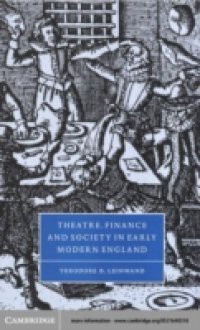This interesting study examines emotional responses to socio-economic pressures in early modern England, as they are revealed in plays, historical narratives and biographical accounts of the period. These texts yield fascinating insights into the various, often unpredictable, ways in which people coped with the exigencies of credit, debt, mortgaging and capital ventures. Plays discussed include Shakespeare's The Merchant of Venice and Timon of Athens, Jonson's The Alchemist and Massinger's A New Way to Pay Old Debts. They are paired with writings by and about the finances of the corrupt Earl of Suffolk, the privateer Walter Raleigh, the royal agent Thomas Gresham, theatre entrepreneur James Burbage, and the Lord Treasurer Lionel Cranfield. Leinwand's new readings of these texts reveal a blend of affect and cognition concerning finance that includes nostalgia, anger, contempt, embarrassment, tenacity, bravado and humility.

